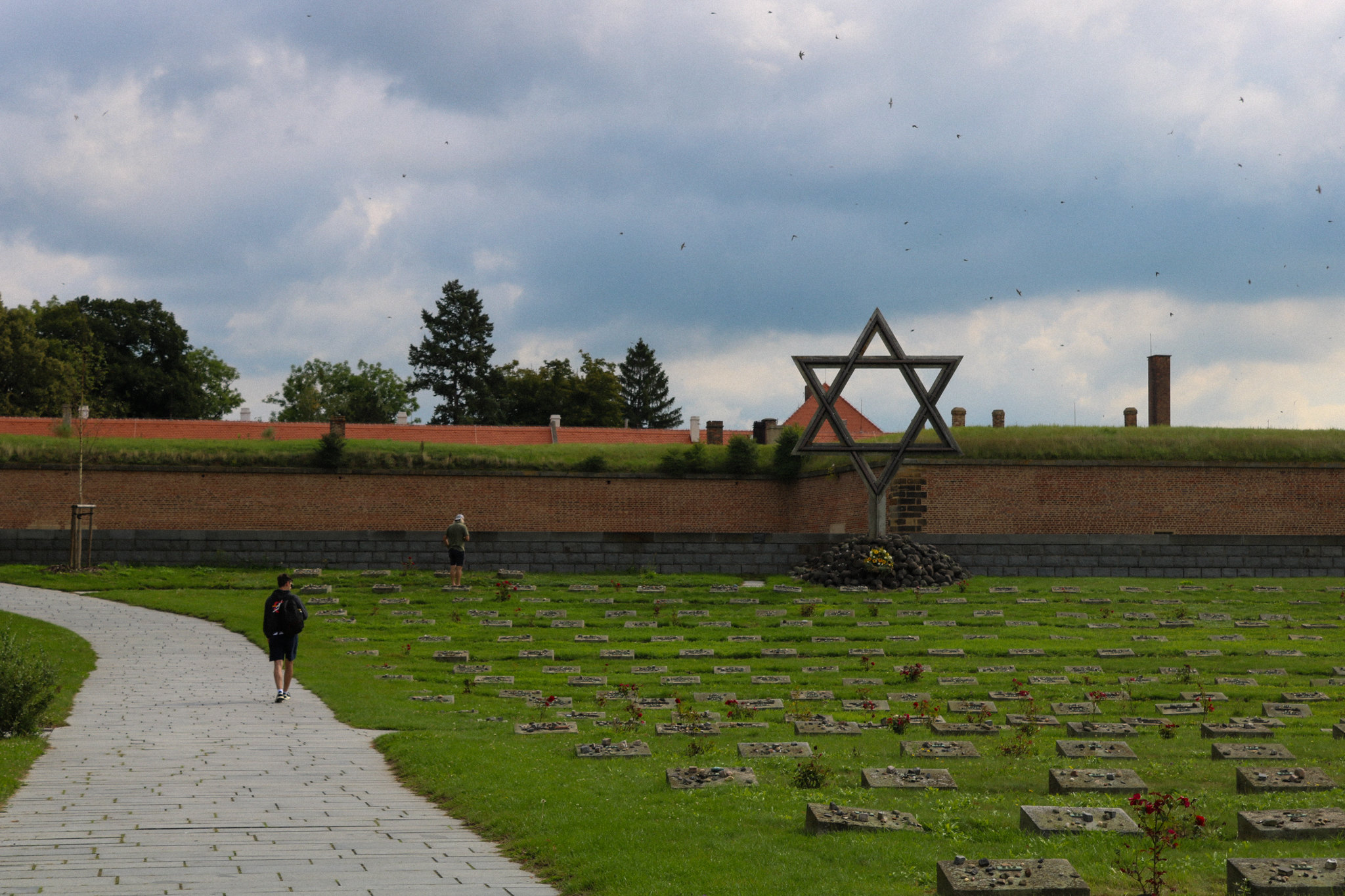The Elie Wiesel Study Tour (EWST), administered by American Councils for International Education’s office in Romania, works to preserve and honor the history of the Holocaust. Through an educational tour for college students that spans Romania, Poland, Hungary, the Czech Republic, and Germany, participants understand the intricate political, social, and cultural forces that created and perpetuated the Holocaust, which helps establish a better understanding of human rights.
In August 2023, American Councils Romania initiated the sixth edition of the EWST for 15 Romanian students. The program began in Bucharest with informative sessions about the history of the Holocaust in Romania and Europe, supported by educational materials from the Elie Wiesel National Institute for Studying the Holocaust in Romania (Institutul Național pentru Studierea Holocaustului din România „Elie Wiesel”).
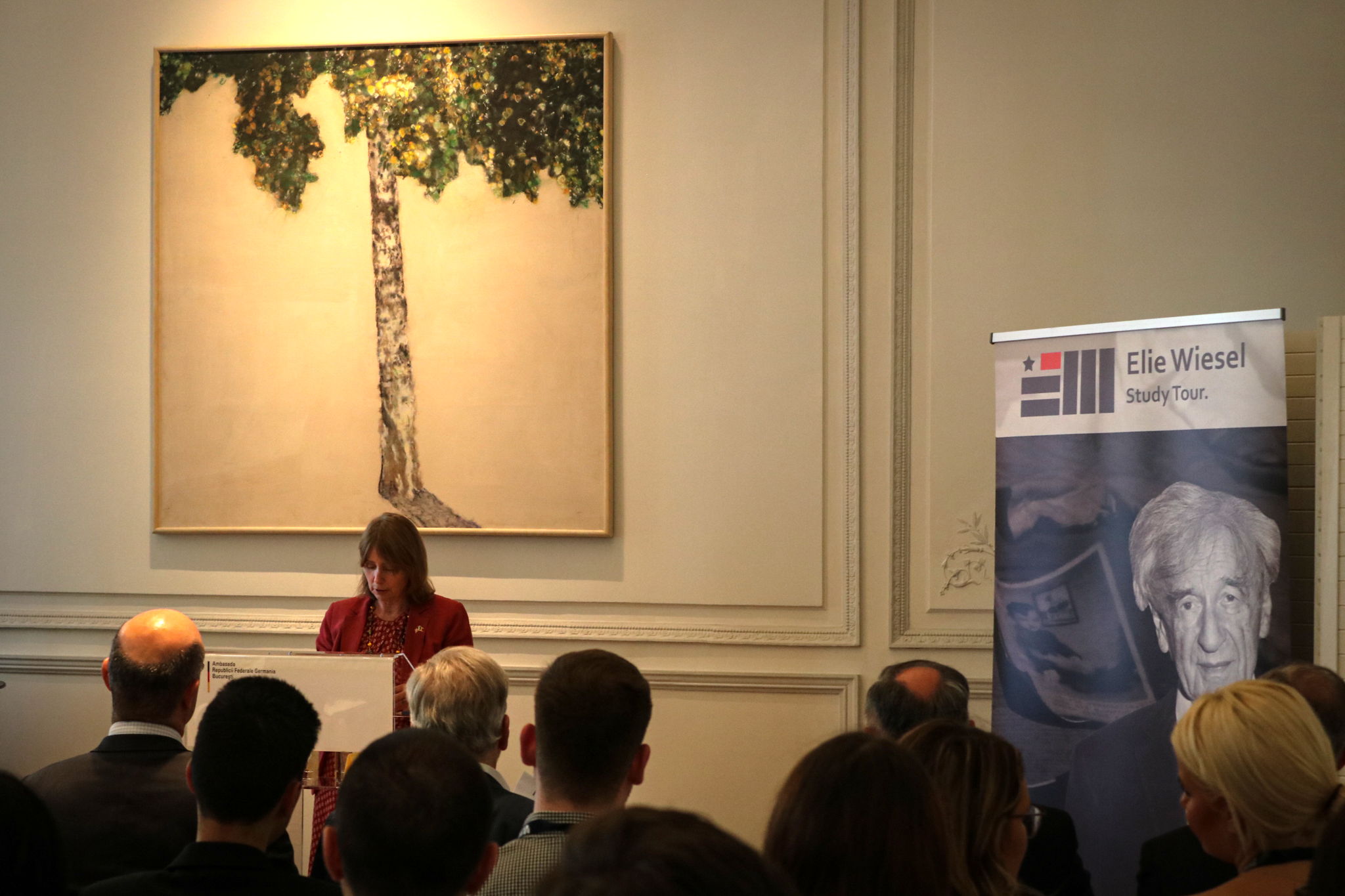
This year, EWST was inaugurated with a reception hosted at the Residence of the Ambassador of the German Federal Republic to Romania, where Her Excellency Kathleen Kavalec, the U.S. Ambassador to Romania, underscored the imperative significance of studying history. “To this day, we see the cynical and irresponsible use of hate speech in our societies, speech which seeks to target and dehumanize groups perceived as different, whether they be Jews, or Roma, or LGBTQi individuals, or other minority or identity groups,” said Ambassador Kavalec during the event. “To combat this, we must recognize and confront the crimes and injustices of the past.”
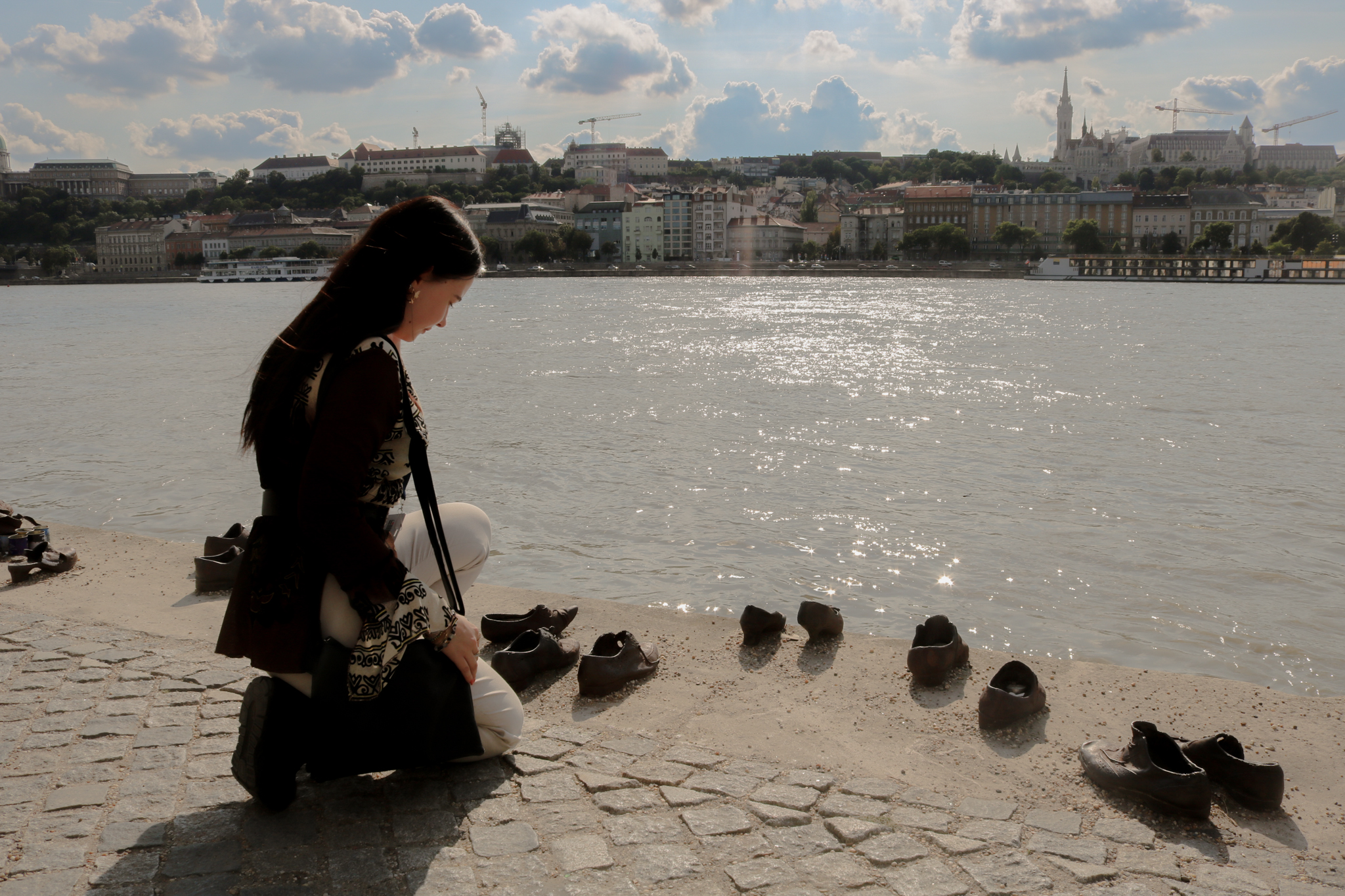 The first stop of the EWST was the Elie Wiesel Memorial House in Sighetu Marmației, Romania, where participants saw where Wiesel lived before he was forced into a ghetto and, along with the entire local Jewish population, deported to Auschwitz. Subsequently, in Budapest, participants paid tribute to the history of Jewish communities in Hungary by visiting the Dohany Synagogue and the Jewish Quarters, a vibrant Jewish community built on the ground where the Budapest Ghetto once stood. At the Shoes on the Danube Bank memorial, a tribute to the Jews who fell victim to Hungarian fascism during the Second World War, participants shared a moment of solemn reflection.
The first stop of the EWST was the Elie Wiesel Memorial House in Sighetu Marmației, Romania, where participants saw where Wiesel lived before he was forced into a ghetto and, along with the entire local Jewish population, deported to Auschwitz. Subsequently, in Budapest, participants paid tribute to the history of Jewish communities in Hungary by visiting the Dohany Synagogue and the Jewish Quarters, a vibrant Jewish community built on the ground where the Budapest Ghetto once stood. At the Shoes on the Danube Bank memorial, a tribute to the Jews who fell victim to Hungarian fascism during the Second World War, participants shared a moment of solemn reflection.
The group then solemnly explored the Dachau Concentration Camp in Germany, an experience that made EWST participant, Voica Iulia, express "Such things shake you from the ground and burden your heart. History is not about exact years and dates but about the emotions it creates when shown and narrated."
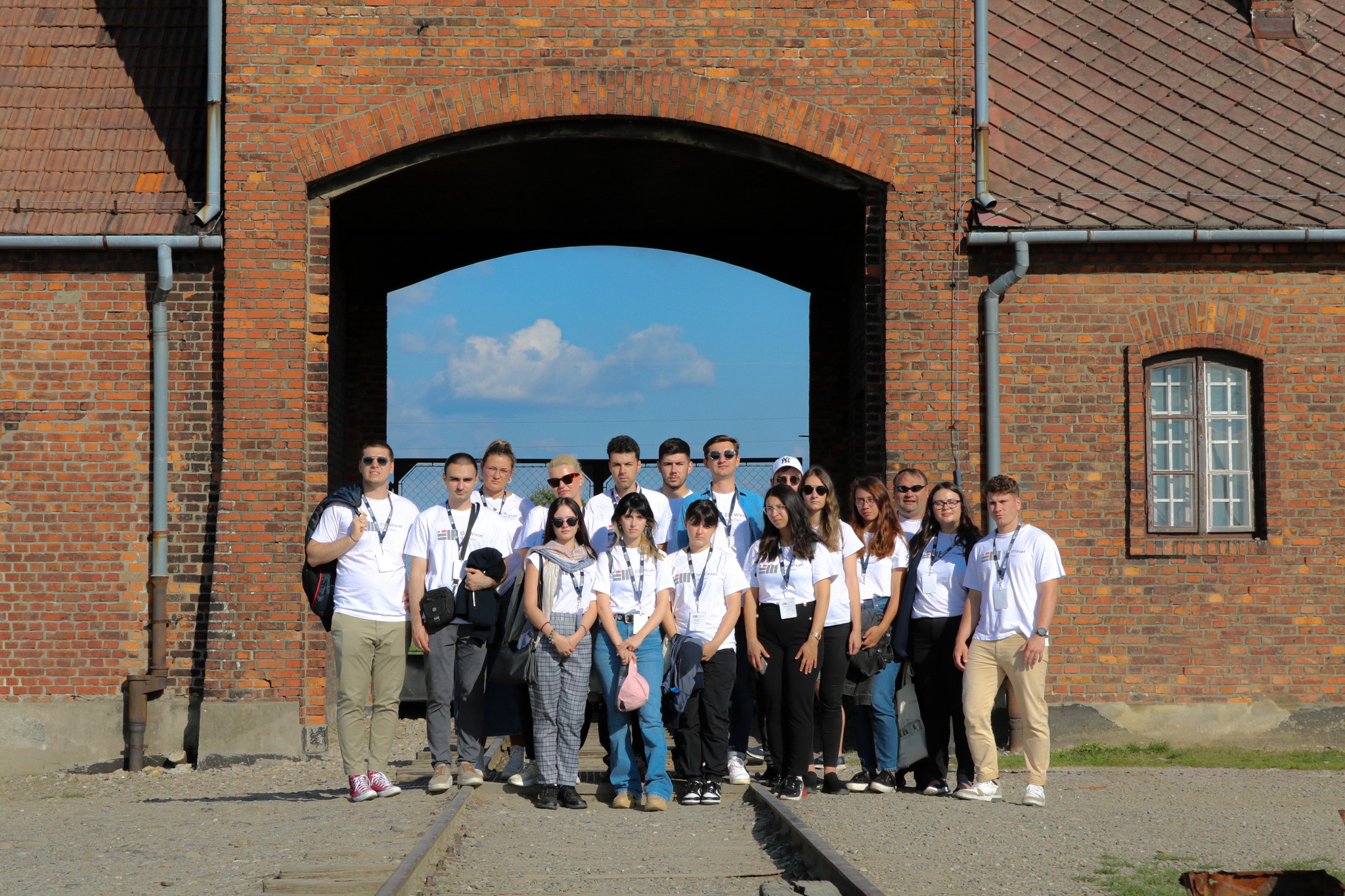
Participants continued their educational journey with a visit to the Terezin Memorial in the Czech Republic, where they witnessed the Magdeburg Barracks and the Theresienstadt Ghetto. The EWST also visited Auschwitz-Birkenau, a concentration and extermination camp, which became an enduring reminder of the Holocaust's horrors. Participant Andrei Olteanu described the impact of these sites by saying, "Each stage of the Elie Wiesel Study Tour represents a piece of a puzzle, each equally important, which, if you put it where it needs to be, you have in front of you a painting with a lot of details, but often difficult to look at."
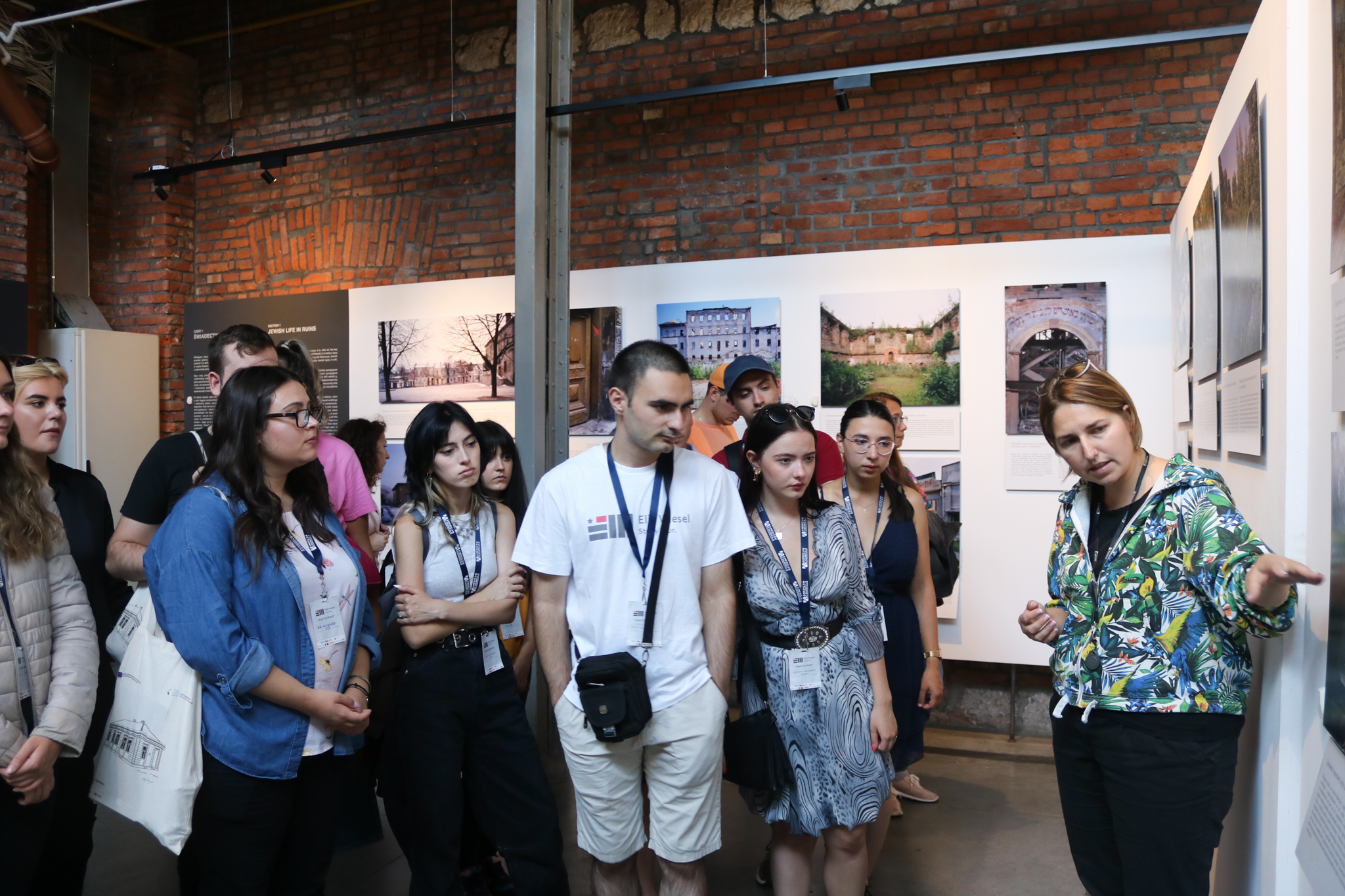
The tour concluded in Krakow, where participants gained insight into the past and present of Poland's Jewish community, exploring the Jewish quarters, Schindler's Factory, and Krakow's synagogues. The Galicia Jewish Museum summarized the EWST experience by showcasing photographs and information from all the places students had visited.
As the sixth edition of this educational journey concluded, its profound influence on participants became unmistakable. From Bucharest to Auschwitz, the EWST reinforced the enduring significance of championing human rights and confronting injustices. Upon completion of the program, under the guidance of EWST Program Director, Iuniana Mîndru, all participants engaged in disseminating their newfound knowledge within their home communities. These efforts included public presentations, thought-provoking discussions with peers and educators, and the authoring of articles in newspapers, school magazines, and university journals.
The Elie Wiesel Study Tour program is funded by the Embassy of the United States in Romania, the Embassy of the Kingdom of the Netherlands in Romania, the Polish Institute in Bucharest, the Embassy of the Federal Republic of Germany and the Embassy of Israel in Romania, with the support of the “Elie Wiesel” National Institute for Studying the Holocaust in Romania, the Embassy of Austria in Romania, OeAD-GmbH – Austria’s Agency for Education and Internationalisation, JCC Krakow, Holocaust Memorial Center – Budapest, Elie Wiesel Memorial House, Zizin, McDonald's and the media partners România Pozitivă and Radio România Cultural.

